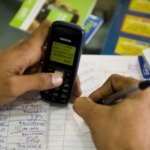
Mobile money has changed the way Ghanaians live and do business. It has brought financial inclusion to millions, especially people who previously had little or no access to traditional banking. In 2023 alone, mobile money transactions reached GHS 1.07 trillion, a 9.4 percent increase over 2022. But as the use of mobile payments grows, so do the risks. Fraud linked to mobile money is becoming one of Ghana’s biggest cybersecurity threats.
The numbers show the seriousness of the issue. The Bank of Ghana reported 13,451 fraud cases across the financial sector in 2023, with mobile money fraud accounting for about 20 percent of those cases. Losses reached GHS 56 million, compared to GHS 33 million in 2021. More than GHS 10 million of those losses came directly from mobile money fraud. In 2024, cyber and technology-related fraud caused almost GHS 10 million in losses, an increase from GHS 8.9 million the previous year.
Fraudsters use many tricks to deceive victims. Social engineering is one of the most common methods, where criminals impersonate officials, send fake messages, or call unsuspecting users with promises of prizes. Many victims are persuaded to give away their PINs or dial harmful USSD codes. Insider collusion is another major problem, with investigations showing that over half of financial fraud cases involve people working inside institutions.
SIM-card takeovers and scams that target mobile-money-only accounts have also caused growing concern and loss of confidence among users. The Bank of Ghana is responding with new measures. It has revised its Cyber and Information Security Directive to address modern risks such as artificial intelligence, cloud systems, and data protection. It has also expanded its Financial Industry Command Security Operations Centre to cover all regulated entities, not just banks.
In addition, the Cyber Security Authority has made the Bank the official Sectoral CERT for finance, giving it more responsibility in coordinating cyber incident responses across the industry. Peter of Fortishield Ghana explains, “Mobile money usage is soaring, but many still lack awareness of critical safeguards.” William Frimpong-Manso of Fortishield Ghana adds, “Only through coordinated efforts from users, providers, and regulators can we build a payment ecosystem secure enough to deter fraudsters.” Moving forward, Ghana must strengthen user education, especially in rural areas and among the elderly. Regular PIN changes should be encouraged.
Banks and telecoms should invest more in AI-based fraud detection and rapid response systems. Agents must be properly trained and monitored, and greater collaboration is needed between regulators, fintechs, and private cybersecurity firms to keep the system safe. Stay ahead of cybercriminals. Protect your online presence today. Visit us at: www.fortishieldghana.com Ghana must act now. Ghana’s cybersecurity measures are not strong enough to protect its leaders, institutions, or citizens.
With cyber threats growing globally, Ghana must shift from reactive responses to proactive defense strategies. Fortishield Ghana stands ready to tackle any challenge on a global scale, ensuring the ultimate protection of our nation.
Ghana must act now. Ghana’s cybersecurity measures are not strong enough to protect its leaders, institutions, or citizens. With cyber threats growing globally, Ghana must shift from reactive responses to proactive defense strategies. Fortishield Ghana stands ready to tackle any challenge on a global scale, ensuring the ultimate protection of our nation.
Written by Melinda Berko | Senior Account Director, Fortishield Ghana